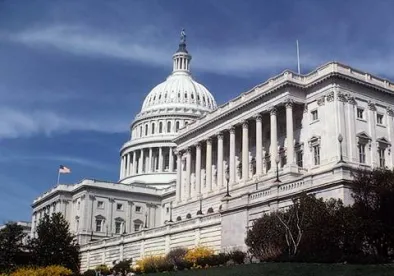It had been nearly seven months since the House of Representatives introduced legislation to reauthorize the Violence Against Women Act (“VAWA”) when, on October 5, 2021, the Senate Judiciary Committee held a hearing to consider the matter. At the hearing, Deputy Attorney General Lisa Monaco testified to the importance of passing legislation to modernize and improve VAWA to better protect underserved populations, including Native Americans. She also noted the role of VAWA in addressing the crisis of missing and murdered Indigenous women and the importance of expanding Tribal jurisdiction to empower Tribes to protect their communities from domestic and sexual violence.
As noted in our Summer 2021 Native Affairs Quarterly, H.R. 1620 includes an expansion of VAWA’s special domestic violence criminal jurisdiction (SDVCJ) for all Tribal governments, including Alaska Native Tribes. That special jurisdiction affirms the inherent authority of Tribes to exercise domestic violence jurisdiction over certain defendants, regardless of their Indian or non-Indian status. The provision is vital to improving the ability of Tribes to respond to incidents of domestic violence in their communities. Because the Alaska Native Claims Settlement Act (ANCSA) extinguished most Indian country in Alaska, and because VAWA expressly ties a Tribe’s ability to exercise SDVCJ to Indian country, most Alaska Tribes are currently ineligible to exercise the special jurisdiction. H.R. 1620 would begin to correct that disparity by expanding the definition of “Indian country” for purposes of a VAWA pilot project to include Alaska Native-owned Townsites, Allotments, and former reservation lands acquired in fee by Alaska Native Village Corporations pursuant to ANCSA, and other lands transferred in fee to Native Villages. The definition would also apply to all lands within any participating Alaska Native Village with a population that is at least 75 percent Alaska Native.
At last month’s hearing, U.S. Senate Majority Whip Dick Durbin (D-IL), committee chair, urged the Senate to move quickly to introduce a bipartisan bill to reauthorize VAWA. Because the Senate is evenly divided at 50-50, Democrats must find 10 Republican votes to avoid a filibuster. The primary sticking points this time around appear to be the same issues that derailed reauthorization before the last Congress: provisions that would add firearm restrictions for convicted domestic abusers and new protections for LGBTQ victims of violence. Although the Senate has yet to pass a VAWA reauthorization bill, in October 2019, Senator Lisa Murkowski (R-Alaska) drafted Alaska Native provisions for VAWA reauthorization that will likely inform the broader Tribal provisions in the bill the Senate puts forward. Her proposal, described in our Spring 2021 Native Affairs Quarterly, would have extended special Tribal criminal jurisdiction to up to 30 Alaska Native Villages or village consortia as part of a pilot program. Instead of redefining the term “Indian country,” Sen. Murkowski proposed expanding the jurisdictional reach of Alaska Tribes participating in the pilot program to the entirety of participating Alaska Native Villages.
VAWA reauthorization is a priority for the Biden Administration, a point Sen. Durbin emphasized at last month’s Senate Judiciary Committee meeting. There is pressure on Congress to reach a bipartisan solution, and we expect whatever legislation results from ongoing Senate negotiations to include expanded jurisdictional authority for Tribes.



 />i
/>i

